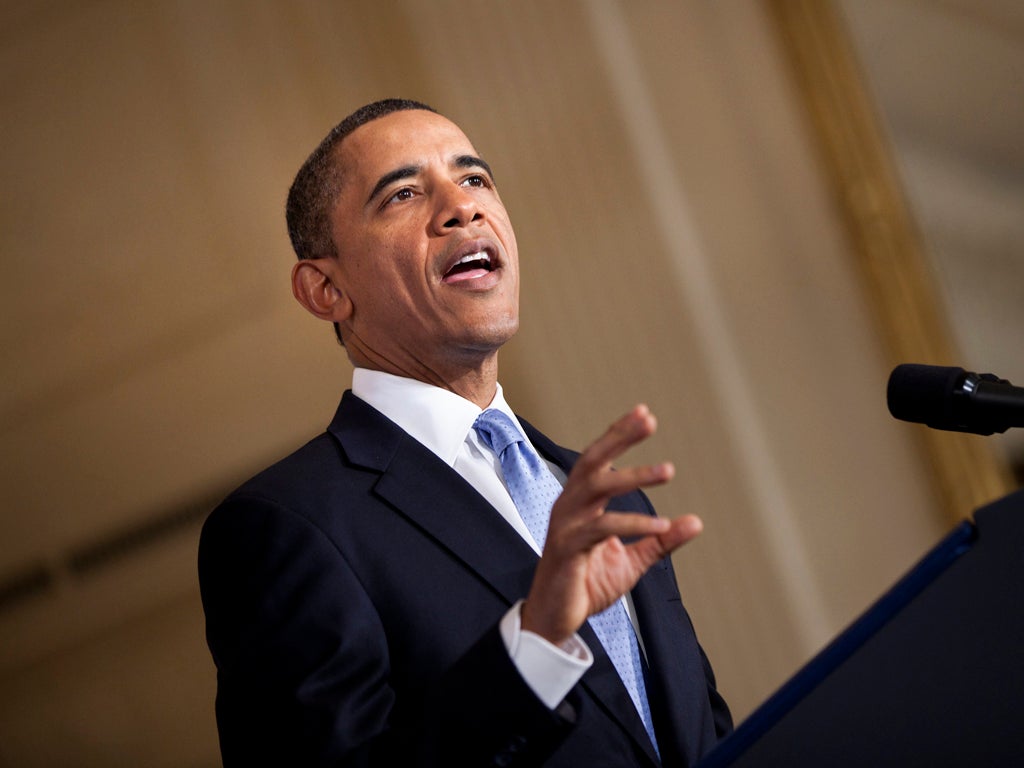Never mind Obama, can the House of Congress avert a fiscal catastrophe in the coming weeks?
America's political elite have shown precious little appetite for bipartisan negotiation over the past four years. Yet the looming fiscal cliff demands urgent co-operation


Voting is over in the election of the world’s most powerful politician. Barack Obama has won. Now attention will switch to the question of whether the world’s most powerful economy will commit hara-kiri – and also disembowel the global recovery in the process. Unless members of the US Houses of Congress agree on a new budget settlement in the coming weeks, spending cuts and tax rises worth around $600bn – or 4 per cent of America’s GDP – will be automatically enacted in January.
Researchers at the World Bank estimate that such a massive fiscal consolidation would reduce US GDP by 2.2 per cent in 2013, erasing all the growth that the country would otherwise have registered next year and, in all likelihood, plunging America back into recession. And such is the size of the US, which sucks in huge quantities of goods from the rest of the world, that an American recession would eviscerate global growth, too. If the US goes over what has been termed a “fiscal cliff”, we go over too.
Pretty much everyone agrees that such a colossal budget consolidation in America would be a disaster. A universal clamour has gone up calling for US politicians to do a deal. G20 finance ministers in Mexico this week stressed the need for the US to avoid “a sharp fiscal contraction in 2013”. Yet the rhetoric of many of the world’s most influential economists and policy-makers in recent years might have led the casual observer to a very different view of the impact of cuts and tax rises on this scale.
Until very recently, there was a powerful caucus of opinion in America and Europe that held deficit reduction by countries whose spending exceeded their revenues to be an urgent priority – and that the bigger the cuts the better. They were listened to. G20 leaders who met in Toronto in 2010 solemnly agreed to halve their budget deficits by the end of 2013 (which, incidentally, is almost exactly what the fiscal cliff would achieve – cutting US state borrowing from 7.3 per cent of GDP to 4 per cent).
Dissenters who argued that such drastic cuts risked aborting a weak global recovery and who advised that it would be better to spread the necessary consolidation over a longer period were informed by the champions of austerity that, on the contrary, deficit cuts would be a tonic. In this view of the world, when states cut their deficits, businesses feel more confident that they will not be clobbered by tax rises further down the line. And the very sight of governments putting their financial houses in order reassures people that interest rates will stay low.
This, we were told, prompts a surge in investment and hiring by the private sector, which more than compensates for the negative impact of public-sector consolidation. Such was the doctrine of the “expansionary fiscal contraction”. Our own Chancellor, George Osborne, has given every indication of believing in it, missing no opportunity to preach the paramount importance of reducing deficits.
It was another George – Orwell – who observed that people tend to hold wild political opinions because of the “secret belief… that they will not have to be tested against solid reality”. Why have the proponents of the doctrine of the expansionary fiscal contraction joined the calls for the US to veer away from the fiscal cliff? Because they can see that “solid reality” looming, and they don’t much fancy the chances of their pet theory surviving the clash.
Banks have behaved like imperialists
“Self-determination” first entered the world’s lexicon in the late 19th century as a description of the right of far-flung nations to throw off the imperial yoke.
So in some ways there was something appropriate in the admission of Douglas Flint, the chairman of HSBC, this week that banks like his, thanks to their scandalous behaviour in recent years, have “lost the right to self-determination”.
Global banks have, indeed, seen themselves as plucky colonies since the 2008 crash – defending their autonomy (fighting new regulation) and even sometimes threatening to secede if they don’t get it (by moving to a new, more favourable jurisdiction).
Yet, to most people, it is the banks that resemble the extractive imperial power – ferociously insisting on their taxation (in the form of too-big-to-fail subsidies) and living lives of Roman-style decadence on the proceeds (vast bonuses).
It’s not banks which deserve self-determination, but the poor taxpayer.
Hamish McRae is away

Join our commenting forum
Join thought-provoking conversations, follow other Independent readers and see their replies